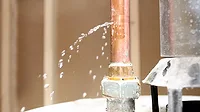How innovation and sustainability are redefining plumbing solutions for tomorrow’s homes
The trend toward sustainability.
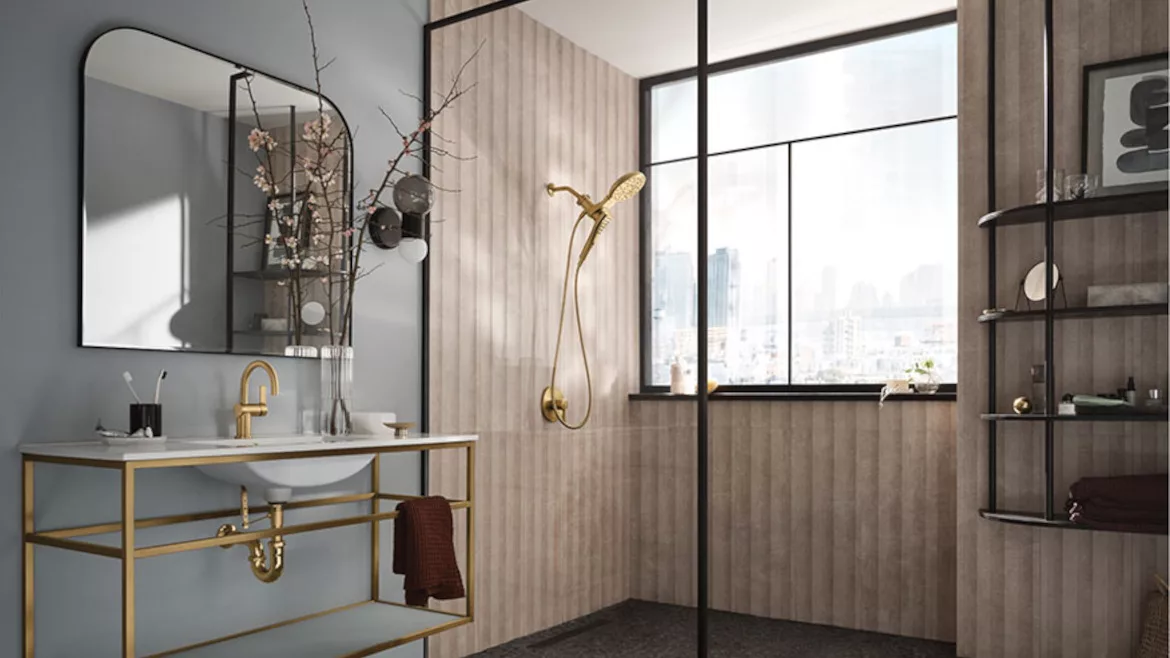
Water-saving plumbing fixtures have been around for decades and are one of the simplest ways professionals can add elements of more sustainable design throughout the home. Images courtesy of Moen
Water scarcity and quality have become widespread issues impacting Americans across the country. As many U.S. states face this challenge, more efficient plumbing technology is emerging as a proactive solution. Embracing sustainability is no longer just a trend, but crucial to the evolution of plumbing, with both tried-and-true fixture offerings as well as new advances making it possible to bring a healthier, more water-efficient reality to life.
Water-saving fixtures are the new “norm”
Water-saving plumbing fixtures have been around for decades and are one of the simplest ways professionals can add elements of more sustainable design throughout the home. When planning plumbing projects for customers, this is an entry-level approach to creating a more eco-friendly home that makes conserving water easy for homeowners.
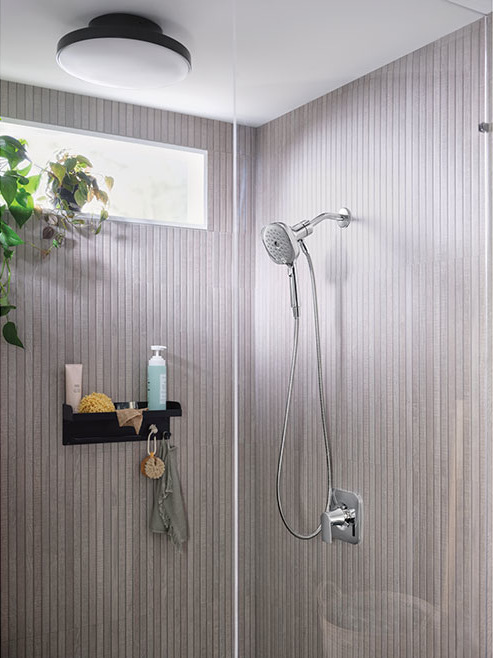
Moen has found that eco-performance showerheads use up to 30% less water, and bathroom faucets use up to 45% less water without sacrificing style or experience. Image courtesy of Moen
Low-flow toilets, showerheads, and faucets make saving water seamless while also delivering on the concept that form and function don’t have to be mutually exclusive. It’s become increasingly common for companies to design kitchen and bathroom fixtures that are available in eco-friendly varieties. Often labeled as WaterSense-certified, they use significantly less water per use at 2.0 gallons per minute (gpm) or less compared to standard models. Moen has found that eco-performance showerheads use up to 30% less water, and bathroom faucets use up to 45% less water without sacrificing style or experience. Having product options designed to conserve water while embracing a stylish design allow for plumbers to provide customers with more design choices that allow for personalization in the home while also protecting our planet.
Beyond smaller fixtures, water efficiency extends to major appliances — the main culprits of water waste in homes. Modern dishwashers and washing machines with built-in water conservation features not only promote sustainability, but also prove to be cost-effective over time, lowering utility bills significantly. Many of these appliances now even integrate smart technology, automating water-saving practices for consumers.
Smart home technology is sustainable home technology
Smart home technology represents a significant advancement in sustainable design, evolving from simple conveniences to comprehensive systems that automate home protection and eco-friendly living practices. Many smart fixtures like faucets and showers are equipped with water pause capabilities, ensuring water is used only when needed for specific tasks — whether filling a dog bowl or adhering to a preset shower routine. This precision helps to reduce typical water waste significantly.
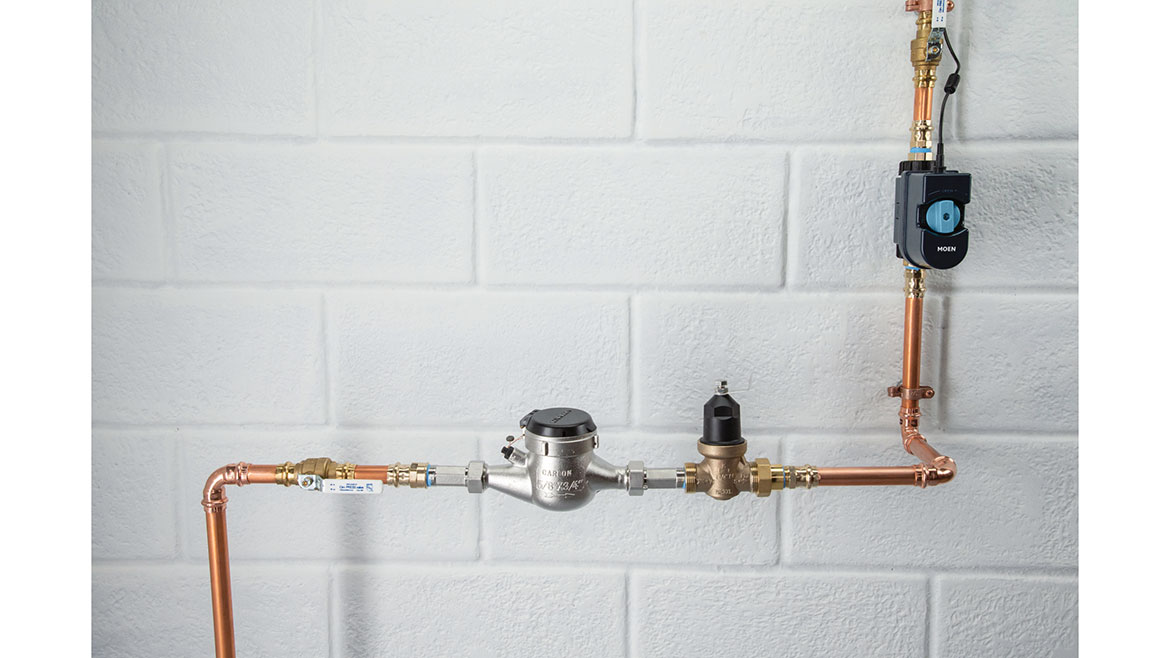
According to the Environmental Protection Agency (EPA), the average household's leaks account for nearly 10,000 gallons of water wasted yearly. Image courtesy of Moen
A growing area of demand for enhanced sustainable design is in the area of leak detection and prevention products. According to the Environmental Protection Agency (EPA), the average household's leaks account for nearly 10,000 gallons of water wasted yearly. Many plumbing professionals now recommend smart water shutoff monitors and leak detectors to prevent potential water damage and conserve resources. These smart devices utilize machine learning, identifying unique water usage patterns in each home to intervene proactively when signs of a leak are detected, preventing damage and reducing water bills.
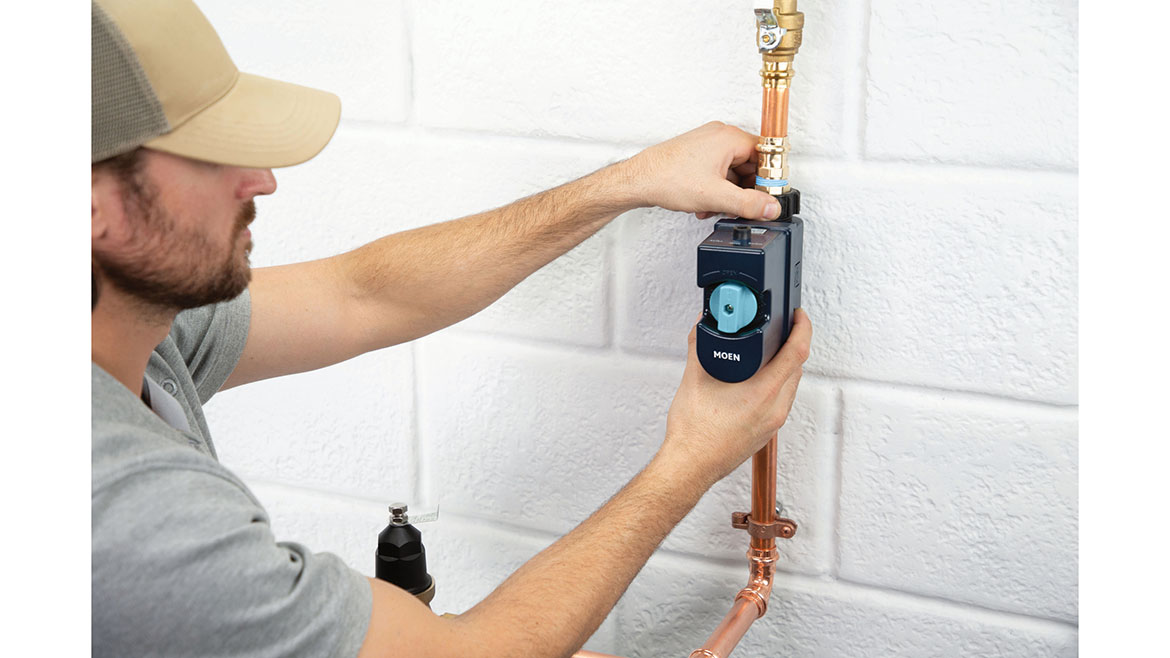
Leak detection devices utilize machine learning, identifying unique water usage patterns in each home to intervene proactively when signs of a leak are detected, preventing damage and reducing water bills. Image courtesy of Moen
From tap to table: benefits of water filtration for personal health and the planet
With water quality continuing to be a growing issue nationwide, water filtration is quickly becoming a major solution homeowners and professionals are looking toward. Today’s advanced filtration products can remove numerous contaminants, including harmful elements like lead, asbestos, pesticides and VOCs, while improving drinking water's taste, color, and clarity – making them an essential solution for the health-conscious homeowner.
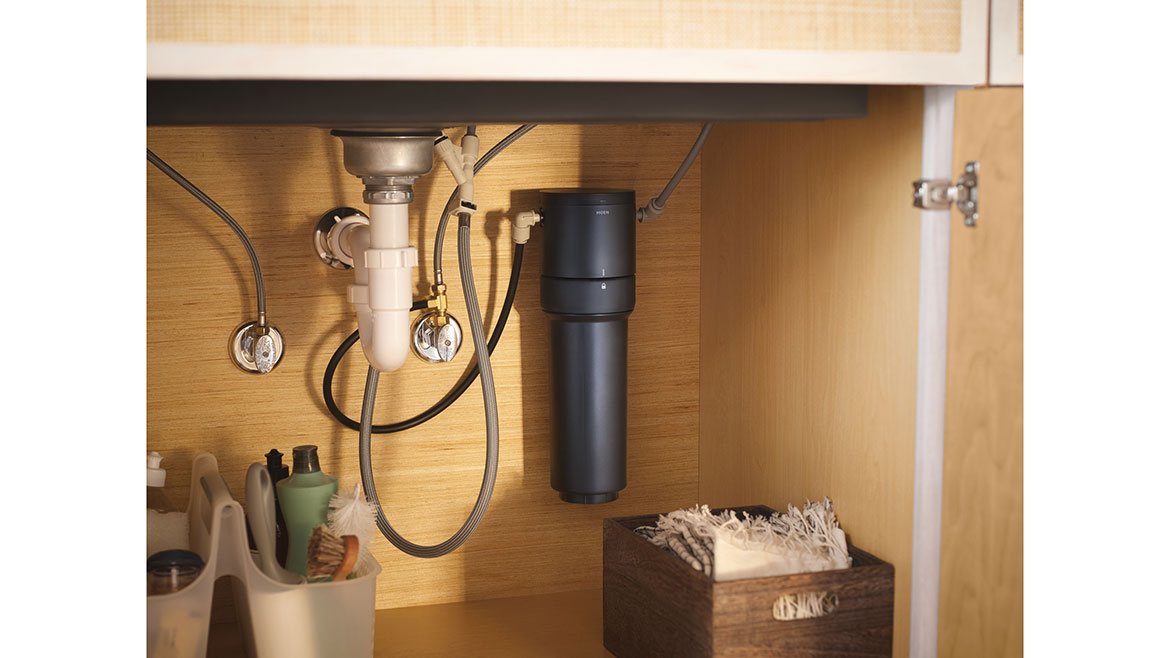
Today’s advanced filtration products can remove numerous contaminants, including harmful elements like lead, asbestos, pesticides and VOCs, while improving drinking water's taste, color, and clarity. Image courtesy of Moen
In addition to the wellness benefits, one of the biggest advantages of integrating filtration products into the kitchen plumbing plan is how much plastic waste is reduced. Not only do filtration systems reduce the amount of single-use plastic bottles used — keeping waste out of landfills — they also help avoid the harmful contaminants found in our water sources due to increased plastic water bottle use.
When choosing a filtration system, plumbers should help their customers choose the most sustainable system they can. Look for an option with a long filter life – ideally at least 6 months – and one that has a minimal wastewater byproduct. The good news is that homeowners don’t have to choose between their aesthetic preferences and the cleaner water provided by a filtration system. From separate beverage faucets to options with filtered water integrated into the pulldown wand, there are filtration solutions to fit every home’s needs.
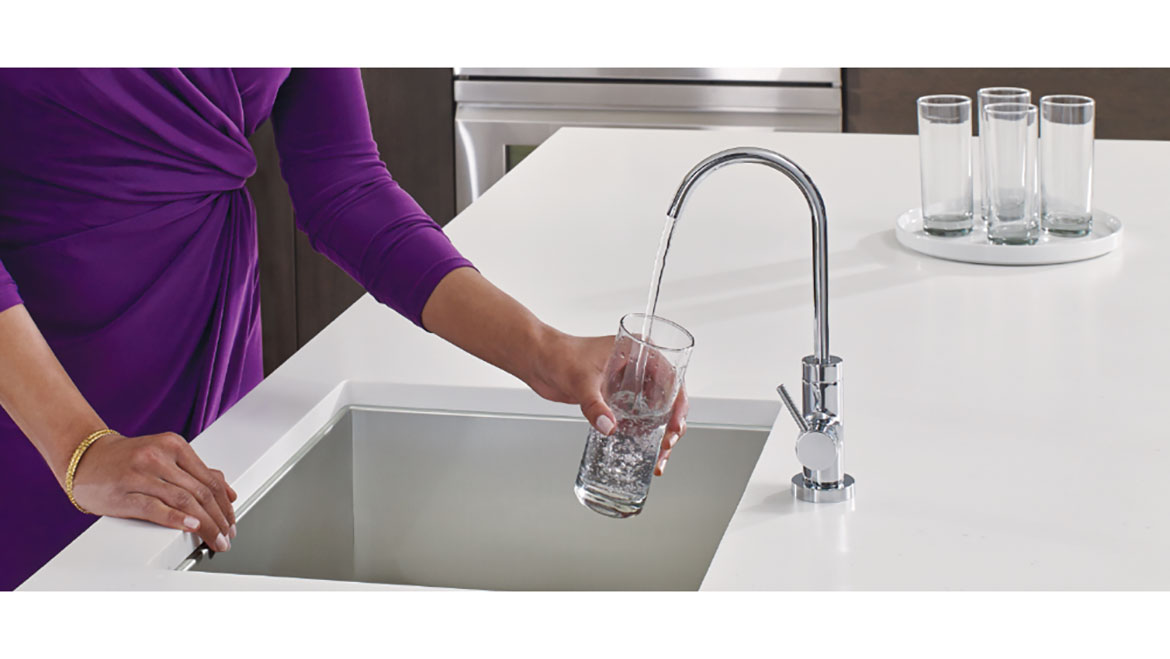
When choosing a filtration system, plumbers should help their customers choose the most sustainable system they can. Look for an option with a long filter life – ideally at least 6 months – and one that has a minimal wastewater byproduct. Image courtesy of Moen
The trend toward sustainability represents a natural evolution in the plumbing industry. With water crises continuing to be an issue throughout the U.S., homeowners are looking for professionals to provide alternatives in fixtures and appliances throughout the home, relying on their pros to provide sustainable choices that also maintain their personal aesthetic and are easy to use in day-to-day life.
Looking for a reprint of this article?
From high-res PDFs to custom plaques, order your copy today!





